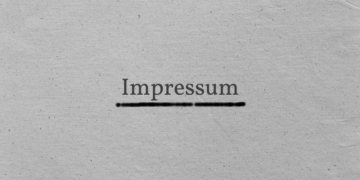Introduction: The legal gray area of the influencer world
In my practice as a lawyer who advises a large number of influencers, I come across complex legal challenges time and again. One of the central problems in the digital world of social media is the question of the identifiability of individuals. Influencers often operate under pseudonyms or nicknames, which makes legal disputes more difficult, especially in the case of injunctive relief claims. In addition, reaction videos or similar formats often make indirect reference to people without mentioning them by name, which further complicates the legal situation. The Dresden Higher Regional Court has now dealt with these issues in a groundbreaking decision dated 23.03.2024 (Ref. 4 W 213/24) and made important clarifications on the identifiability of persons in social media and the need for legal protection in the case of injunctive relief. The decision concerned a case in which a person was mentioned in a TikTok livestream without being explicitly named, resulting in legal consequences. The court had to clarify whether and how the person concerned is considered identifiable and what effects this has on possible claims for injunctive relief. The decision of the Higher Regional Court of Dresden is of great importance for practice and creates more legal certainty in an increasingly relevant area of media law.
Identifiability without naming
In its ruling, the Higher Regional Court of Dresden clarified that the identifiability of a person does not necessarily require them to be named. Rather, it is sufficient if the transmission of partial information gives the person concerned reasonable grounds to assume that he or she could be recognized within a more or less large circle of acquaintances. This view is in line with the case law of the Federal Court of Justice and underlines the fact that a person can also be recognized by contextual information that enables a certain group of people to identify the person concerned. The decisive factor here is not whether a majority of the addressees or even the “average recipient” can recognize the person concerned. It is sufficient if the reporting provides information to persons who are in a position to establish the identity of the person concerned on the basis of their other knowledge. The Dresden Higher Regional Court has thus extended the scope of protection of personal rights and taken into account the realities of digital communication. Particularly in social networks, where influencers often operate under stage names or pseudonyms, identification can also take place without explicit naming if there is sufficient evidence to enable attribution.
Need for legal protection for injunctive relief
Another key aspect of the decision concerns the need for legal protection for an application for injunctive relief. The Higher Regional Court of Dresden clarified that such a need does not exist if a similar obligation is already contained in a court settlement that the applicant could enforce. In the specific case, the defendant had already undertaken in an earlier settlement not to make any more statements about the applicant in future, which also included the statements in dispute. The applicant could therefore have enforced this court settlement instead of initiating new court proceedings. The court emphasized that the scope of the respondent’s obligation was broad and that she was no longer allowed to comment on the applicant’s person at all in the general public and on social platforms. For a breach of this obligation, it does not matter whether the applicant’s right of personality was violated, as the obligation to cease and desist existed independently of this. This applies not only to the naming of the applicant, but also to statements in which the applicant is identifiable, as this is then a core-like act of infringement.
Consequences for practice
The decision of the Higher Regional Court of Dresden has far-reaching consequences for practice and creates more clarity in an increasingly relevant area of media law. It makes it clear that the identifiability of a person in digital communication, especially on platforms such as TikTok, is broadly defined and is not limited to direct naming. Influencers, but also other actors in social media, must be aware that even indirect references to persons can have legal consequences if there is sufficient evidence for identification. At the same time, the decision underlines the importance of existing legal agreements, such as court settlements, which may already contain injunctive obligations. Lawyers and their clients should carefully review existing agreements and, if necessary, enforce them before taking new legal action. This can save time and money and enable effective enforcement of claims. Overall, the decision of the Higher Regional Court of Dresden strengthens the protection of personal rights in social media and creates more legal certainty for all parties involved. It emphasizes the need for careful and responsible handling of information and statements about other people in the digital world and provides valuable guidance for legal practice.













































